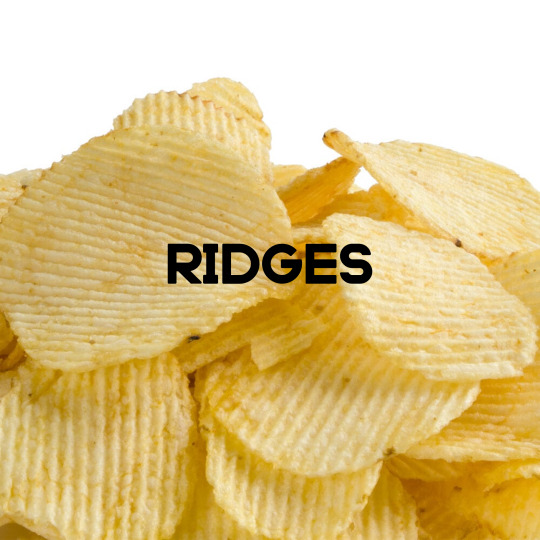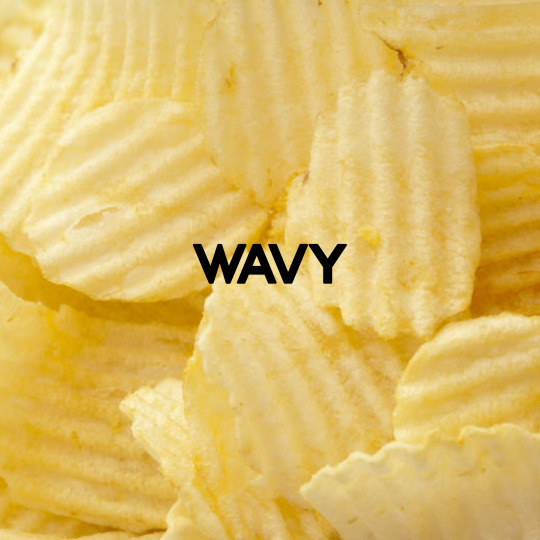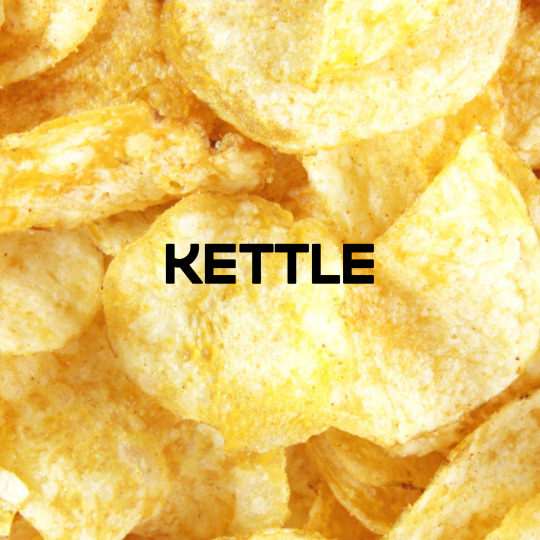Don't wanna be here? Send us removal request.
Text
📕 𝟓𝟎-𝐝𝐚𝐲 𝐚𝐜𝐚𝐝𝐞𝐦𝐢𝐜 𝐜𝐡𝐚𝐥𝐥𝐞𝐧𝐠𝐞
March 1st ! If you’ve been slacking, if your study habits have been messy, or if finals are creeping up way too fast this is it. I did a 20-day productivity challenge before, but now, with finals staring me down and less than 90 days to go, I need to actually get my flip together.For the next 50 days, I’m locking in. This isn’t about aesthetic study sessions or fake productivity or like those 10s filming study routine 💁🏻♀️ . It’s about deep focus, real progress, and making sure you n i walk into finals prepared, not panicked.
before we start! what are the ..
🔴 Things You Need to Avoid
When you’re pushing yourself to study, it’s easy to fall into traps that make the process feel harder than it needs to be. One of the biggest things to avoid is procrastination. It’s tempting to delay tasks and distract yourself with less important things, but the truth is, the longer you wait, the more overwhelming it becomes. Putting things off only builds stress and leaves you with less time to focus on what truly matters.Another major pitfall is burnout. While it might feel like working non-stop is the key to success, the reality is that exhaustion doesn’t lead to productivity. If you push yourself too hard without breaks or balance, you’ll find your focus slipping, and your energy drained. Instead, aim for deep, focused study periods with scheduled rest to recharge. The key is working smart, not just hard.u also NEED to stay away from passive studying. Reading over your notes without actively engaging with the material might feel like you’re making progress, but it’s not enough. True learning happens when you interact with the content whether that’s through active recall, practicing problems, or teaching the concept to someone else. It’s about getting the information out of your head, not just in.And then there’s multitasking, which can be deceiving. You might think that juggling multiple tasks or subjects at once is a sign of productivity, but in reality, it dilutes your focus. Instead, concentrate on one subject at a time and give it your full attention. By focusing deeply, you’ll achieve better results in less time.Finally, avoid over-planning. It’s easy to get stuck in an endless loop of scheduling and rearranging without actually doing the work. While having a plan is crucial, it’s more important to take action. Don’t get paralyzed by perfection; start moving forward, and adapt as you go.
💡 What You Need to Succeed
Success in a challenge like this comes down to preparation, mindset, and consistency. First and foremost, you need to set yourself up for success by organizing everything you need. Having your books, notebooks, and study tools ready at your desk isn’t just about being prepared—it’s a psychological trigger that helps you get into the right mindset. When you see your space ready for work, it subconsciously tells your brain that it’s time to focus.But it’s not just about the materials. Your environment matters. A cluttered space can lead to a cluttered mind, so make sure you have a clean, quiet place to study. This is where you’ll spend most of your time, so make it a space that supports your work rather than distracts you. Even something as simple as proper lighting and a comfortable chair can make a huge difference in your ability to focus.It’s also essential to have the right tools. Flashcards, sticky notes, mind maps, or even physical planners whatever helps you engage with the material actively is what you should have at hand. You don’t need to follow a one-size-fits-all strategy, but it’s about finding what works best for you. What will make the material stick? What will make you more engaged and less likely to zone out?Consistency is key, too. This isn’t a sprint y'all u need to commit to a study schedule that’s manageable and realistic. Establish a routine that you can stick to every day thats what my teachers say everyday whether it’s an hour in the morning or a few hours in the evening. Building consistency will help you develop the discipline needed to push through tough moments, especially when motivation runs low.Finally, don’t forget about your energy. Sleep, food, and overall well-being are the foundation of any successful study routine. Without proper rest, your brain can’t absorb or retain information. Make sure you’re getting enough sleep to let your brain recharge and consolidate what you’ve learned. Likewise, pay attention to your body when you're well-rested and nourished, you’ll feel more alert, focused, and motivated. Let's cb !
📕 𝟓𝟎-𝐝𝐚𝐲 𝐚𝐜𝐚𝐝𝐞𝐦𝐢𝐜 𝐜𝐡𝐚𝐥𝐥𝐞𝐧𝐠𝐞 𝐩𝐥𝐚𝐧
( starting March 1 – May 9)
0️⃣1️⃣ Week 1: System Reset & Strategy (March 1-7)
🔹 List everything you need to study before finals.
🔹 Identify weak areas & high-priority topics.
🔹 Create an adaptable study plan (structured but flexible).
🔹 Set non-negotiable study hours per day (📚 2< hours).
🔹 Organize notes & resources so you’re not scrambling later.
🔹 Test different study environments & methods to maximize focus.
0️⃣2️⃣ Week 2: Deep Focus & Active Recall (March 8-14)
🔹 No passive studying (no just reading or highlighting).
🔹 Prioritize active recall (practice papers, Q&A, teaching concepts).
🔹 Use visual memory aids (mind maps, charts, bullet points).
🔹 Track distractions & eliminate what kills your focus.
🔹 Keep a focus log: What breaks your concentration? Fix it.
0️⃣3️⃣ Week 3: Technical Subjects and theory based subjects (March 15-21)
📜 Literature, history , philosophy... and theory-based subjects:
➖ Read critically, summarize, and debate ideas (not just memorize).
➖ Work on structured arguments & analysis for essays.
📈 Math ... problem-solving subjects:
➖ Use timed practice to simulate exam pressure.
➖ Write key formulas & rules on flashcards.
➖ Break down problems into step-by-step solutions.
🔹 Study difficult subjects when your energy is highest.
0️⃣4️⃣ Week 4: Writing & Expression (March 22-28)
🔹 Summarize topics in your own words every day.
🔹 Create one-page cheat sheets for major topics. (for revision nothing else 💁🏻♀️)
🔹 Write mock essays & structured answers (practice depth).
🔹 Focus on clarity & argument-building (make your writing strong).
🔹 Challenge: Can you explain this concept in 3 sentences?
0️⃣5️⃣ Week 5: Self-Testing & Performance Check (March 29-April 4)
🔹 Take full practice tests under exam conditions.
🔹 Time yourself: Work on speed & accuracy.
🔹 Identify weak spots and revisit them.
🔹 Grade your own work harshly—improve where needed.
🔹 Find patterns in mistakes and create strategies to fix them.
0️⃣6️⃣ Week 6: Memory & Retention (April 5-11)
🔹 Daily mini-revision of past weeks’ topics (keep everything fresh).
🔹 Use mnemonics, stories, & memory associations.
🔹 Sleep optimization for memory consolidation (good sleep = better recall).
🔹 Try retrieval practice before checking notes.
🔹 Apply concepts in real-life situations (where possible).
0️⃣7️⃣ Week 7: Peak Productivity & Stamina (April 12-18)
🔹 Push study hours (without burnout).
🔹 Use study sprints: 2-3 intense sessions per day.
🔹 Reduce fake productivity (low-value tasks don’t count).
🔹 Prioritize high-impact topics.
🔹 Simulate exam pressure—train yourself to think fast under stress.
0️⃣8️⃣ Week 8: Advanced Questioning & Strategy (April 19-25)
🔹 Study past exam patterns : what do they repeat?
🔹 Learn what examiners actually want in answers.
🔹 Debate answers with yourself or others (argue both sides).
🔹 Find alternative explanations for complex topics.
🔹 Challenge: What’s the hardest question you could get? Be ready.
0️⃣9️⃣ Week 9: Mastery & Confidence (April 26-May 2)
🔹 Final review: Focus only on weak spots.
🔹 80/20 Rule: What 20% of topics will help the most?
🔹 Do “last-minute style” studying—but without panic.
🔹 Take simulated exams with time limits (test performance).
🔹 Train your brain to stay confident under pressure.
🔟 Week 10: Exam-Specific Prep (May 3-May 9)
🔹 Prioritize final polishing, NOT cramming.
🔹 Review summaries, key formulas, & essay structures.
🔹 Optimize sleep & energy (don’t mess this up now).
🔹 Have a "cheat sheet" in your mind for each subject.
🔹 Last 3 days: Light review, no stress, trust your prep.
last tip !
There will be moments when u feel like giving up, when the material seems overwhelming or the effort too much. That’s when your mindset needs to kick in. The difference between success and failure isn’t about natural talent or born smart it’s about your ability to keep going when things get tough I'm talking about the material not burnout out .The truth is, hard work, perseverance, and adaptability are what lead to success not innate ability.Think of each week as a building block, each day as a step forward. Every time you study, you’re not just learning the material you’re evolving. You’re becoming more disciplined, more capable, and more confident. Even on the days when you feel like you’ve made little progress, remind yourself that you’re making small, consistent strides. These small changes compound over time
good luck !
@bloomzone
458 notes
·
View notes
Text
Cuộc sống vô thường như một trò đùa vậy...
Mình chẳng thể xoay chuyển hoặc có một mảy may tác động được gì trên thế giới này, với cả chính cuộc đời của mình.
Dù mình muốn hay không, cuộc đời này cũng bị vận chuyển theo dòng chảy ngoại tác, mà chỉ một phần nhỏ nằm được trong bàn tay của mình thôi.
0 notes
Text

Happiness:
Health: Exercise still sweat, Eat and Drink good things, Sleep 7-8 hours
Wealth: Salary + Income from Networking + Small Business + Property
Relationship: Self + Family + Love + Friend
0 notes
Text
HIỂU VỀ BÃO
Bão chỉ hình thành trên biển và suy yếu dần khi đổ vào đất liền.
Năm 1948, nhà khí tượng Erik Palman đưa ra 3 điều kiện cơ bản cho sự hình thành của bão là nhiệt, ẩm và động lực để tạo xoáy.
Khu vực đại dương có diện tích đủ lớn với nhiệt độ mặt biển phù hợp (từ 26 – 27o C trở lên), đảm bảo nước bốc hơi với lượng cần thiết, đẩy mạnh vòng xoáy theo cả chiều dọc và chiều ngang, cung cấp năng lượng ngưng kết lớn cho hệ thống bão. Vị trí hình thành bão có lực Coriolis (*) đủ lớn để tạo xoáy. Áp thấp nhiệt đới dần dần được hình thành. Nếu áp thấp duy trì trên vùng nước ấm, nó sẽ mạnh lên thành bão và có thể tăng cấp thành bão mạnh.
Ông chứng minh được rằng bão chỉ có thể hình thành ở dải vĩ độ 5 đến 20o hai bên xích đạo nơi có nhiệt độ nước biển cao từ 26 – 27oC trở lên và lực Coriolis đủ lớn để hình thành nên luồng gió đủ mạnh trên cao nhằm tạo xoáy cho cơn bão.
Năm 1963, nhà khí tượng học Riehl bổ sung thêm hai điều kiện cho sự hình thành bão: Ở trên cao, trường khí áp phải phân kỳ (dãn ra) đủ để đảm bảo giải tỏa khối lượng không khí hội tụ (tập trung) ở mặt đất. Ở mặt đất phải có sự nhiễu động áp thấp ban đầu.
Bão là một cột xoáy khổng lồ, ở tầng thấp (từ 0 đến 3km so với mặt nước biển) không khí nóng ẩm chuyển động xoắn ốc (ngược chiều kim đồng hồ ở Bắc bán cầu, thuận chiều kim đồng hồ ở Nam bán cầu do tác động của lực Coriolis) hội tụ vào tâm bão, chuyển động thẳng đứng lên trên trong thành mắt bão và tỏa ra bên ngoài ở trên đỉnh theo chiều ngược lại.
Theo đó, cơn bão hình thành ở Bắc bán cầu luôn di chuyển lệch về bên phải, còn bão hình thành ở Nam bán cầu luôn di chuyển lệch về bên trái. Chính vì thế, các cơn bão hình thành ở biển Đông luôn có xu hướng di chuyển về phía đất liền Việt Nam.
Cấu trúc của bão gồm mắt bão, thành mắt bão và hoàn lưu bão.
Ngay chính giữa tâm bão là mắt bão, thường là vùng trời quang, gió nhẹ. Thường các cơn bão mạnh sẽ có mắt bão rõ rệt hơn so với các cơn bão yếu.
Bao quanh mắt bão là thành mắt bão, nơi mây tạo thành một bức tường lên cao (hàng km) và là nơi gió thổi mạnh nhất.
Bên ngoài thành mắt bão là hoàn lưu bão, nơi có các dải mây gây mưa.
Sức gió là tốc độ gió duy trì trong một thời gian dài, và đây là căn cứ để đánh giá độ mạnh yếu của bão. Tác hại do bão gây ra chủ yếu do các cơn gió giật, chỉ kéo dài vài giây đến dưới 1 phút nhưng tốc độ lớn hơn hẳn so với sức gió. Do vậy, các bản tin dự báo bão luôn có tin về gió giật, ngoài tin về sức gió.
*Lực Coriolis: lực sinh ra do sự tự quay quanh trục của Trái Đất
0 notes
Text
0 notes
Text
0 notes
Text
I love Wavy, Ridges and Kettle
Then it comes to Classic, Pringles and Baked






✨please reblog for science✨
4K notes
·
View notes
Text
Day 1
Today I decided to create a blog to improve my skill set in using English. I hope Grammarly will help me make this journey easier.
0 notes
